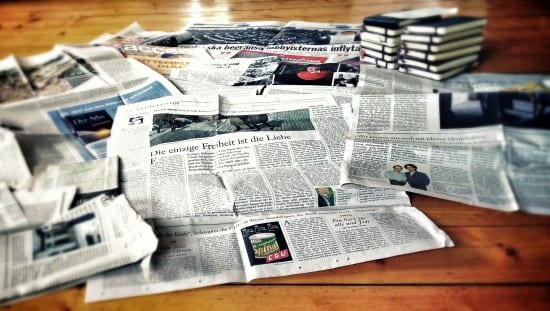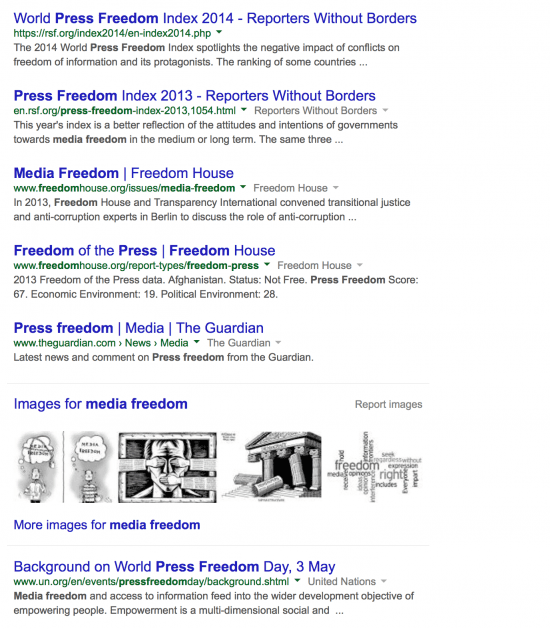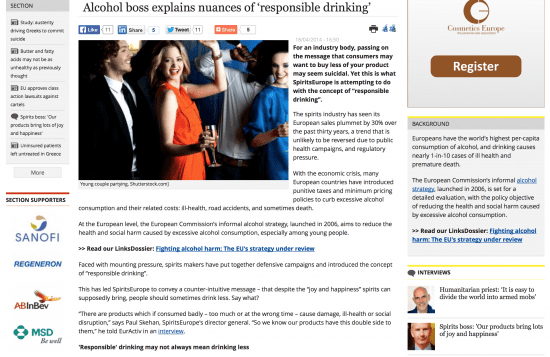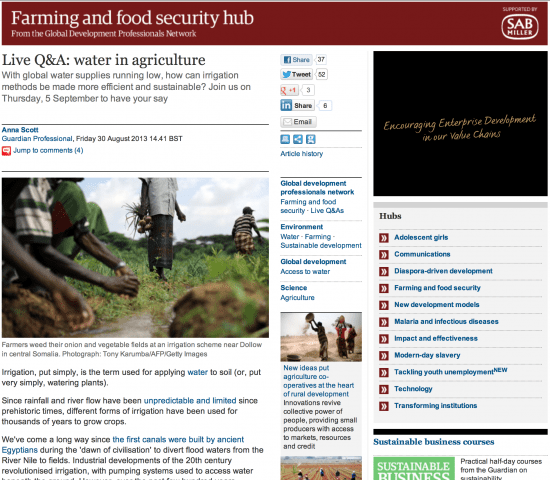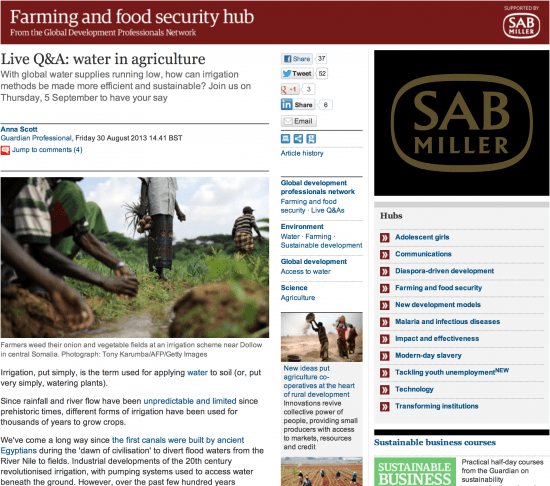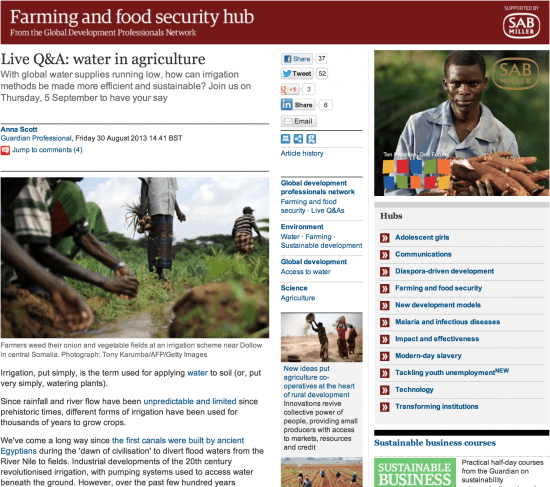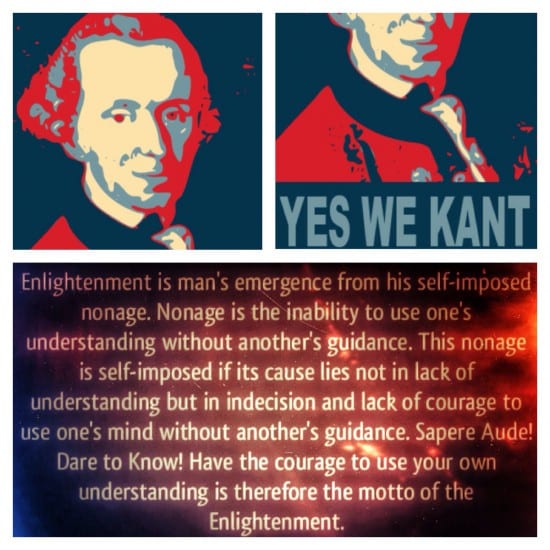I read newspapers every day. It’s part of my job. And it’s part of my passion ever since I, still too little to be able to read, joined my dad in his huge armchair on Saturday mornings after breakfast and read with him the huge newspaper, page by page. No talking, just studying the newspaper. I loved it then and the behaviour has stayed with me till the present.
Newspapers have always seemed sacred to me. Newspapers were one of the few things in my own life I kept defending from the digitalisation. I loved the smell, the ink on the fingertips after reading through one. I loved the feel of the paper and I loved all of what newspapers stood for: news and knowledge, understanding, different opinions, exciting insights, surprising stories, inspiring thoughts, democracy, freedom. I loved newspapers because I thought they bring the world to me and open doors to understanding it.
Today, I have a number of subscriptions of different newspapers from different countries and continents, covering different topics and “political ideologies”. But my relation to newspapers has cooled of. As I understand more and more about issues and affairs of this world, I keep finding out that more and more articles are inadequate in addressing those issues and affairs. Less and less newspapers manage to reflect evidence anymore as they aim for pop culture, and serve some stereotypical target group á la “sex sells”, as they have fallen prey to special interests and have made themselves slaves to corporate interests.
I googled “media freedom”. And the hits I got look like this:
Reporters Without Borders, Freedom House and The Guardian pop up as top search results after some (at that time current) media issues in China and Jordan. Two out of the three, however, serve as sad examples for how media has made themselves unfree, slaves of corporations. Those are tough words and I know that people don’t usually think of The Guardian and Reporters Without Borders in that way. So, here’s the evidence…
What do you think of a website like this? It’s an article from EurActiv, an outlet for “EU news and policy debates across languages”.
To the left you have AnheuserBusch InBev (the worlds largest beer producer) as “section supporter”. In the middle there’s the article by Frédéric Simon and to the right there’s the headline “Spirits boss: ‘Our products bring lots of joy and happiness'”.
No they do not. In fact, they do the opposite. But readers will not learn it from EurActiv. EurActiv brings to us marketing disguised as “journalism”. The entire article lacks any evidence that would paint a realistic picture instead of the one the alcohol industry is portraying. There’s no discussion, no change of perspectives to look at aspects of the issue that is ignored.
This is what wikipedia has to say on the definition of journalism: “Journalism is a method of inquiry and literary style that aims to provide a service to the public by the dissemination and analysis of news and other information. Journalistic integrity is based on the principles of truth, disclosure, and editorial independence.”
Obviously, Mr. Frédéric Simon has not been inquiring anything. His article is lightyears away from providing the public with analysis, investigation and critical thinking. He, like the entire outlet EurActiv, has compromised “truth, disclosure and editorial independence.”
Big Alcohol and the harm their products cause make up a big burden on public health, society and social fabric, the economy, but also democracy as such. I’ve covered this issue previously in my blog for International Day of Democracy.
As newspapers around the world feel the pressure of dwindling readerships, rising competition from the digital world (social media, bloggers etc.) and decreasing advertising income, they transgress into practices that compromise the independence and freedom of journalism.
We see that Big Business advertisers (like Big Alcohol) exercise more and more aggressive pressure on editors, reporters and stories. We see that journalists get entangled with particular interests, compromising their independence and the integrity of their journalism. Consider the example of German journalists from some of the major newspapers: Sueddeutsche Zeitung, Die Zeit, F.A.Z.
https://www.youtube.com/watch?v=5_c2-Yg5spU
As the two comedians look deeper into the EU-Ukraine Association Agreement, at chapters that the media in the West generally didn’t cover, they also expose the reasons why leading journalists of the leading media outlets in Germany (for instance) have not looked at certain aspects of the issue and in not doing that have compromised editorial independence. They show a board of think tanks, institutes, organisations and government agencies all united in the interest of more armament, and bolstering NATO and the role of the military in geopolitical issues. On the board they also show leading German journalists. And then they consequently reveal the relations of these journalists with those special interests lobby organisations. “This is a pretty tight-woven network”, is the comment. Among others, the two comedians address one example where journalists sit in a council that has to advice the German Federal Government, the same government they are supposed to critically monitor and report on. Another example is Jochen Bittner of the German weekly Die Zeit: he had been involved in preparing a strategy paper on the new German security policy, and afterwards he wrote positively about the same security policy in Die Zeit…
I used to read the newspapers mentioned in the video, too. But it turns out that leading journalists and members of the editorial boards are entangled with special lobby interests. Some newspapers, like The New York Times, prohibit this type of activity and entanglements.
But overall, especially concerning the global alcohol industry, we can see that press freedom is under enormous pressure and that the media outlets are part of the problem: they give up their freedom, independence and integrity.
Consider the example of Reporters Without Borders: They partnered with beer producer Heineken for fundraising.
Heineken stands for immoral conduct in Congo during the war and unethical marketing practices when it comes to how they portray women (to just mention two examples of their track record…).
Reporters Without Borders has the following mission:
– to continuously monitor attacks on freedom of information worldwide;
– to denounce any such attacks in the media;
– to act in cooperation with governments to fight censorship;
– to financially assist persecuted journalists, as well as their families;
– and to offer material assistance to war correspondents in order to enhance their safety.
With this kind of mission statement, it should be impossible for Reporters Without Borders to cooperate in any way with the alcohol industry, let alone to receive money from them.
But for Heineken, this is just another tool for marketing purposes. Obviously they target young people and try to associate themselves with values that their core business and other operations are undermining: freedom of thought, critical thinking and independent journalism.
To understand the context even better, two examples help:
1) We’ve already taken a look at EurActiv and their entanglement in doing advertising disguised as journalism. You can see it clearly in what they call “dossier” on alcohol harm in Europe. The whole “thing” is so heavily prioritising evidence, view points, perspectives and quotes from the alcohol industry that it seems like a parody.
2) The Guardian supplies, sadly, another example. Known for their Wikileaks, Snowden and Greenwald works, you’d think that they are uncompromisingly on the side of press freedom and media’s independence. Unfortunately, if you think so, you are wrong. I am one of those who were wrong.
The Guardian’s section on global development has a part on food security and farming. It’s sponsored by SABMiller. Obviously there is a huge conflict of interest at work here:
Alcohol is an obstacle to development. I had the opportunity and privilege to go to East Africa, for example, and speak to the people there and many of them raise the issue of Big Alcohol operations jeopardising water and food security there. Alcohol’s climate footprint is a very real issue and alcohol is in many other ways linked to poverty, ill-health and under-development. Only you wouldn’t learn about it from The Guardian’s global development pages.
Today is World Press Freedom Day and I read an article on the importance of free media for sustainable development. Governments all over the world make it hard for journalists, newspapers, filmmakers etc. I think that journalists themselves should therefore make sure that it is not themselves, too, who contribute to compromising media freedom and confining media independence.
We know that the media feel pressure from governments. But increasing pressure comes from corporations.
Freedom of the press, media freedom is one of the most fundamental liberties we have and democratic societies depend greatly on journalists’ heart-driven work (not seldom under great personal sacrifices) to inquire, investigate, independently report, critically ask and supply the public debate with different perspectives and competing aspects of an issue at hand. I personally think it really is one of the most noble things to work on because free journalism represents the essence of the enlightenment project…
Using the alcohol issue is a useful lens on the state of the media today. Under this lens, we see media under great pressure from (Big Alcohol) corporations. We see marketing infiltrating journalism. We see rising conflicts of interest and we see how and to what extent media freedom is threatened and compromised – and with it the understanding of what evidence says and what industry says; of what reality is like and what the myths by Big Alcohol are like.
Seeing these examples it seems to me the biggest question today, on World Press Freedom Day is: will the media be able and willing to continue to serve democracy and the enlightenment of the people, or are they headed down a road towards entanglement with special interests and corporate pressure on journalistic inquiry and integrity?
—
For further reading:
Advertising Pressures On Newspapers. A Survey, by Soley and Craig, in: Journal of Advertising
The Economist: Press Freedom in the Balkans. Troublesome Times
